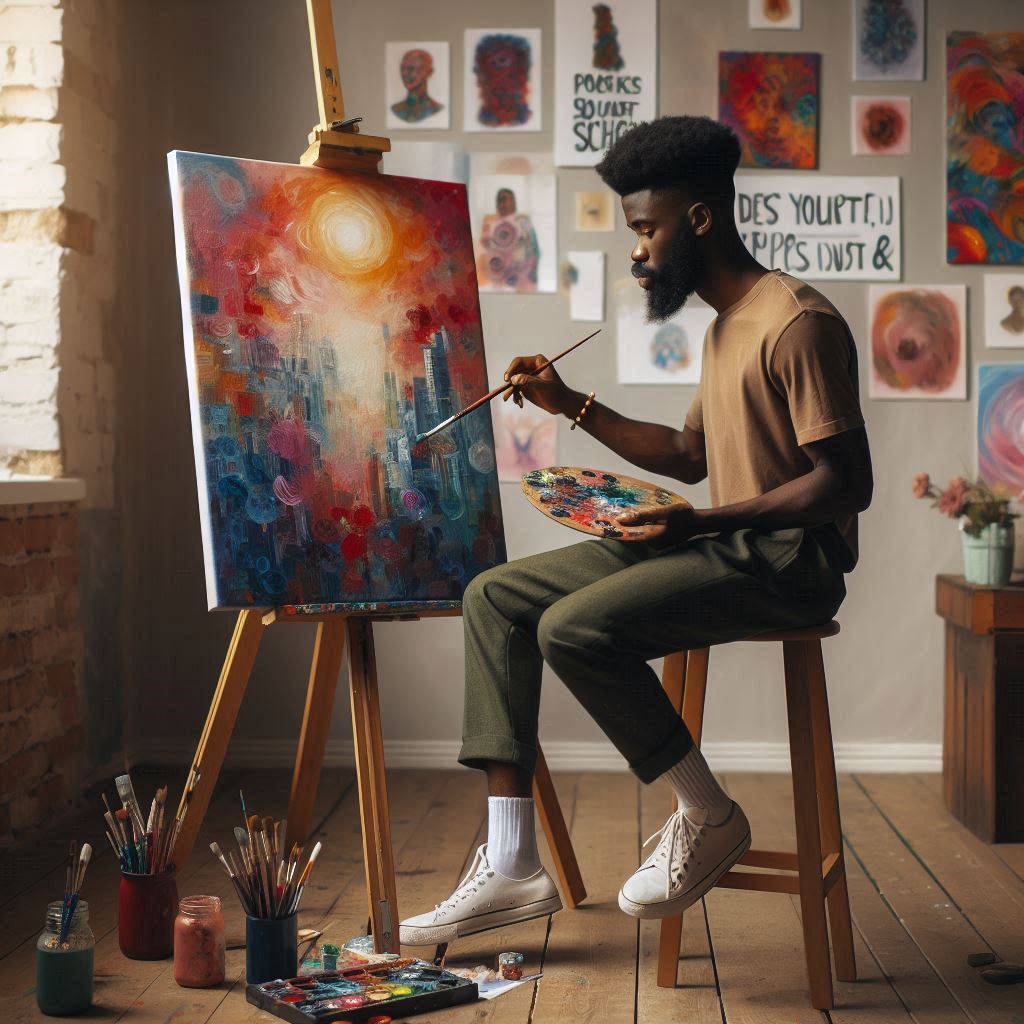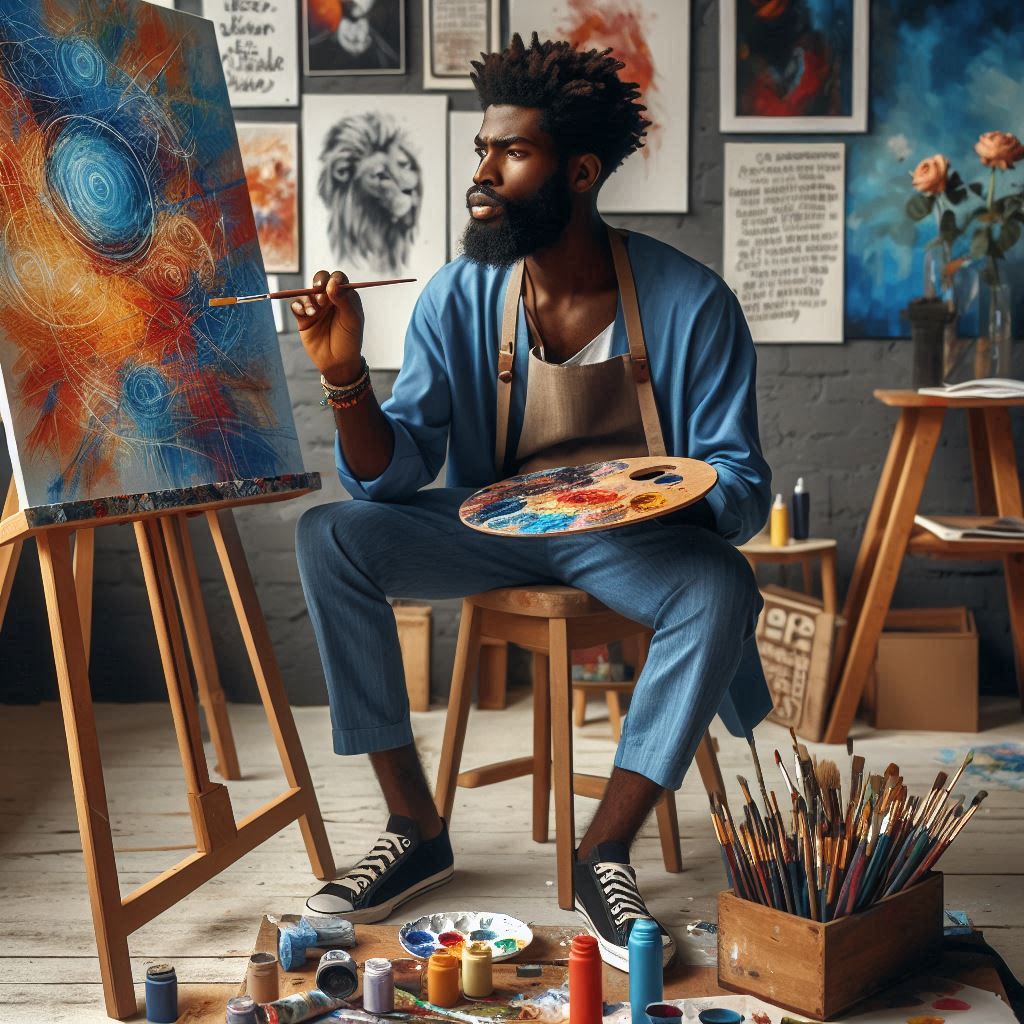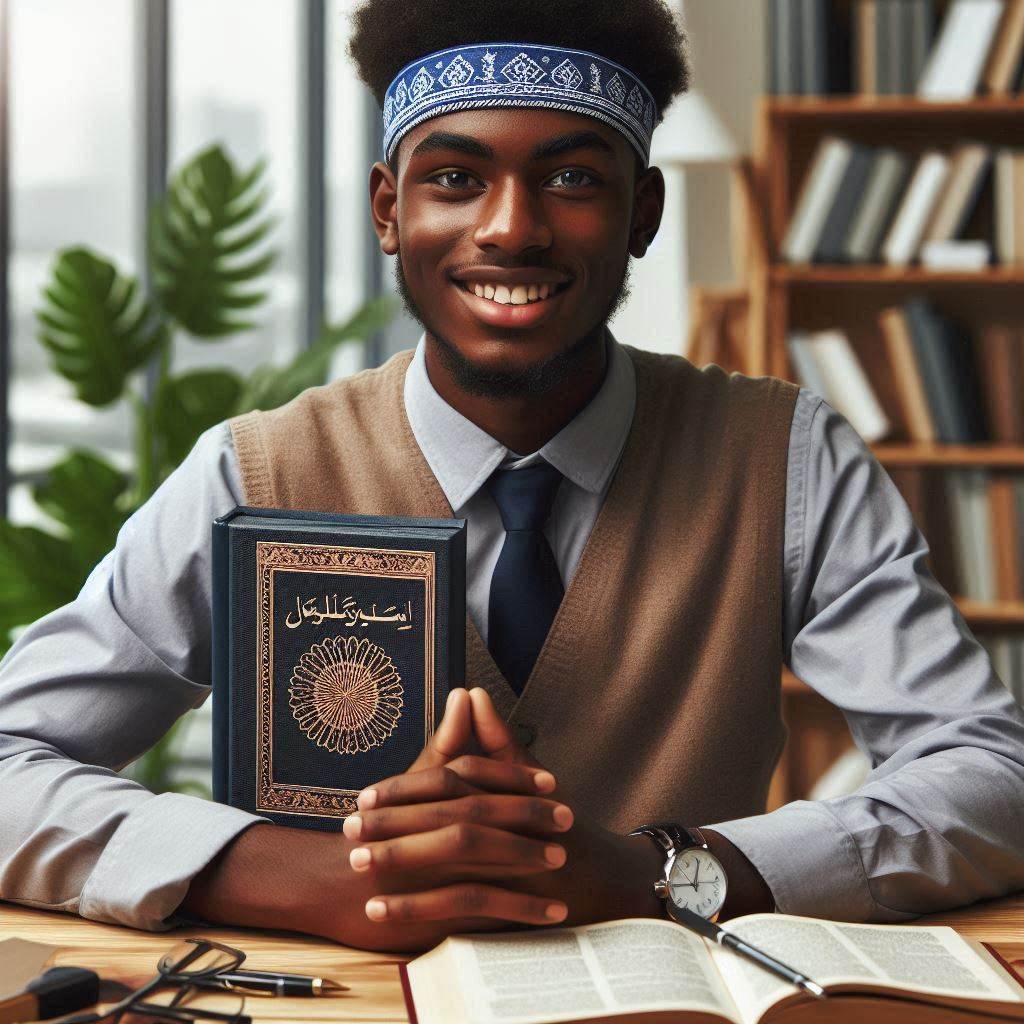Introduction
The impact of Nigerian arts on global culture is an expansive topic that reflects the nation’s deep-rooted artistic traditions and vibrant cultural heritage.
Nigeria, often referred to as the “Giant of Africa,” boasts a diverse tapestry of artistic expressions, ranging from traditional tribal art to contemporary literature and music.
These artistic contributions have transcended borders and resonated with audiences worldwide, shaping the global cultural landscape in profound ways.
Nigeria’s artistic heritage is a testament to the creativity, resilience, and cultural richness of its people, spanning centuries of history and encompassing a myriad of influences from various ethnic groups and historical periods.
As we delve into the intricate nuances of Nigerian arts, we uncover a treasure trove of creativity and innovation that continues to inspire and captivate audiences across continents, reaffirming Nigeria’s place as a cultural powerhouse on the global stage.
Historical Context
The historical significance of Nigerian arts and how they have evolved over time
- Nigerian arts have a rich historical significance dating back to ancient civilizations.
- Traditional Nigerian art forms like pottery, textiles, and sculptures depict the country’s cultural heritage.
- These art forms have evolved over time, blending traditional techniques with modern influences.
- Nigerian art is deeply rooted in cultural practices, rituals, and beliefs of various ethnic groups.
- The influence of traditional Nigerian art can be seen in contemporary artistic expressions worldwide.
Evolution of Nigerian Arts
- Nigerian arts have evolved from simplistic tribal representations to complex modern interpretations.
- Colonialism and globalization have influenced the development of Nigerian art in various ways.
- Traditional Nigerian artists often incorporate elements of nature and spirituality in their works.
- Modern artists draw inspiration from traditional motifs, patterns, and symbols to create innovative pieces.
- The fusion of traditional and contemporary techniques has resulted in a diverse and dynamic art scene in Nigeria.
Influence of Traditional Nigerian Art Forms
- Pottery, a traditional Nigerian art form, is still practiced by artisans across the country.
- Textiles, such as adire and kente, showcase intricate designs and vibrant colors reflecting Nigerian culture.
- Sculptures, made from wood, bronze, and other materials, depict deities, ancestral figures, and everyday life.
- Traditional Nigerian art forms serve as a source of inspiration for contemporary artists seeking to preserve cultural heritage.
- The use of indigenous materials and techniques in contemporary art projects a sense of identity and pride in Nigerian culture.
By exploring the historical significance of Nigerian arts and their evolution over time, we gain a deeper understanding of the cultural richness and diversity of Nigeria.
The influence of traditional Nigerian art forms such as pottery, textiles, and sculptures on contemporary artistic expressions highlights the resilience and creativity of Nigerian artists.
Nigerian arts have played a significant role in shaping global culture by blending traditional techniques with modern influences.
The fusion of traditional motifs, patterns, and symbols with contemporary art practices has created a unique and dynamic artistic landscape that continues to captivate audiences worldwide.
Overall, Nigerian arts have left a lasting impact on global culture through their rich historical significance, evolution over time, and influence on contemporary artistic expressions.
By preserving and promoting traditional Nigerian art forms, artists are able to celebrate their cultural heritage and contribute to the diversity of artistic expressions on a global scale.
Read: Bridging the Gap in Nigerian Mental Health Services
Global Recognition
The international recognition and appreciation of Nigerian arts in the global art scene
We witness the profound impact of Nigerian creativity on a worldwide scale.
From visual arts to literature, music to cinema, Nigerian artists, musicians, writers, and filmmakers have left an indelible mark on the global cultural landscape.
Examples of Nigerian artists, musicians, writers, and filmmakers who have gained global acclaim for their work
Nigerian arts have garnered international acclaim, enriching the global art scene with their distinctive contributions.
Across various disciplines, Nigerian artists have captivated audiences worldwide with their talent, creativity, and unique perspectives.
From renowned visual artists like Ben Enwonwu, whose iconic sculptures and paintings have been exhibited in prestigious galleries around the world, to contemporary artists like Njideka Akunyili Crosby, whose mixed-media works explore themes of identity and culture, Nigerian artistry continues to make waves on the global stage.
In the realm of music, Nigerian musicians have achieved widespread recognition for their infectious beats, captivating melodies, and powerful lyrics.
Artists like Fela Kuti, the pioneer of Afrobeat music, and Burna Boy, a modern-day icon known for his fusion of afro-fusion and reggae, have garnered international acclaim, earning Grammy awards and topping global music charts.
Nigeria’s literary scene is equally impressive, with writers like Chinua Achebe, Wole Soyinka, and Chimamanda Ngozi Adichie achieving global renown for their thought-provoking novels, essays, and poems.
Their works, which often explore themes of colonialism, identity, and social justice, have resonated with readers worldwide, earning prestigious literary awards and accolades.
Read: The Future of Psychology Education in Nigeria
Cultural Exchange
How Nigerian arts contribute to cultural exchange and promote intercultural dialogue
Nigerian arts play a significant role in cultural exchange by serving as a bridge between different cultures.
Through various art forms such as music, dance, literature, and visual arts, Nigerians are able to share their rich cultural heritage with the rest of the world.
- Nigerian arts showcase the diversity of the country’s cultural traditions and practices, providing a window into the unique customs and beliefs of its people.
- These artistic expressions foster intercultural dialogue by encouraging conversations and interactions between individuals from different backgrounds.
Influence on Global Cultural Trends
Nigerian artistic practices and traditions have had a profound impact on global cultural trends and artistic movements.
One example of this influence is seen in music, where Nigerian musicians have gained international recognition for their unique blend of traditional rhythms and contemporary sounds.
- Afrobeats, a genre of music that originated in Nigeria, has become increasingly popular worldwide, influencing artists and listeners around the globe.
- Nigerian literature has also gained prominence on the global stage, with writers like Chinua Achebe and Chimamanda Ngozi Adichie receiving critical acclaim for their works.
Furthermore, Nigerian visual artists have made significant contributions to the global art scene, with their works being exhibited in galleries and museums across the world.
Artists such as Ben Enwonwu and El Anatsui have received international recognition for their innovative and thought-provoking creations.
Generally, Nigerian arts not only contribute to cultural exchange and promote intercultural dialogue but also play a vital role in shaping global cultural trends and artistic movements.
Nigerians enrich the global cultural landscape by sharing their unique artistic heritage, inspiring creativity worldwide.
Read: Psychology and Counseling Services in Nigerian Schools

Discover More: Digital Art: The Future of Fine and Applied Art
You Might Also Like: Career Opportunities with European Languages in Nigeria
See Related Content: Best Resources for English Language Students in Nigeria
Uncover the Details: The Role of Economics in Nigeria’s Policy Making
Preservation and Promotion
Efforts to preserve and promote Nigerian arts both locally and internationally
Efforts to preserve and promote Nigerian arts are crucial for safeguarding the nation’s cultural heritage.
Locally and internationally, initiatives strive to ensure the longevity and visibility of Nigeria’s rich artistic traditions.
The role of cultural institutions, government initiatives, and grassroots organizations in preserving Nigeria’s artistic heritage
Cultural institutions play a vital role in preserving Nigeria’s artistic heritage.
Museums, galleries, and cultural centers showcase traditional and contemporary Nigerian art, providing platforms for artists and audiences.
Government initiatives also contribute to the preservation and promotion of Nigerian arts.
Arts education in schools, cultural exchange programs, and funding for artistic projects support Nigerian artists and their work.
Grassroots organizations play a significant role in preserving Nigeria’s artistic heritage.
Community-based initiatives, art workshops, and cultural festivals celebrate Nigeria’s diverse artistic traditions, fostering pride and preserving craftsmanship.
Internationally, Nigerian arts are promoted through cultural diplomacy and global exhibitions.
Collaborations between Nigerian and international institutions facilitate the exchange of artistic ideas and promote cross-cultural understanding.
Read: Understanding Mental Health Laws in Nigeria
Challenges and Opportunities
Challenges facing Nigerian artists in reaching global audiences and securing recognition
Nigerian artists encounter several hurdles in gaining international recognition and reaching global audiences.
Limited access to resources, infrastructure, and funding inhibits their ability to create and showcase their work on a broader scale.
Navigating the complexities of the global art market poses another significant challenge.
Nigerian artists often lack representation, understanding of market dynamics, and networking opportunities necessary for success in international art circles.
Cultural stereotypes and biases also impede Nigerian artists’ path to global recognition.
Preconceived notions about African art and identity may overshadow their unique perspectives, marginalizing and underrepresenting them globally.
Opportunities for further promoting Nigerian arts on the global stage, such as international collaborations and cultural exchange programs
Despite these challenges, there are numerous opportunities to enhance the visibility and appreciation of Nigerian arts globally.
International collaborations offer avenues for Nigerian artists to showcase their work, engage with diverse audiences, and build international networks.
Collaborations with global artists enrich Nigerian artists’ practice, expose them to new ideas, and expand their horizons.
Cultural exchange programs foster cross-cultural dialogue and understanding, promoting appreciation for Nigerian arts and culture on a global scale.
Through exhibitions, residencies, and workshops, Nigerian artists can share their stories and perspectives, fostering mutual respect and appreciation.
Advancements in technology and digital platforms present unprecedented opportunities for Nigerian artists to reach global audiences.
Online galleries, social media, and virtual exhibitions allow artists to showcase their work worldwide, overcoming the limitations of physical boundaries.
Participation in international art fairs, biennials, and festivals offers valuable exposure and networking opportunities.
Nigerian artists can elevate their profiles and enrich global culture by engaging with the global art community.
Despite challenges, Nigerian artists have ample opportunities to promote their work globally and reach diverse audiences.
Nigerian artists impact the global cultural landscape by addressing barriers, fostering collaborations, and embracing technological advancements.
Conclusion
In summary, Nigerian arts have left an indelible mark on global culture, showcasing the country’s rich heritage and diverse artistic expressions.
From literature and music to visual arts and film, Nigerian artists have captivated audiences worldwide with their talent and creativity.
It is imperative to recognize the profound impact of Nigerian arts on the global cultural landscape.
These artistic endeavors not only celebrate Nigeria’s cultural identity but also foster cross-cultural dialogue and understanding.
As we reflect on the significance of Nigerian arts, it becomes clear that celebrating and supporting them is essential.
By embracing Nigerian arts, we acknowledge their unique contributions to the global artistic community and honor the creativity and resilience of Nigerian artists.
In the end, let us continue to celebrate and support Nigerian arts, recognizing them as invaluable assets to the global cultural tapestry.
Through our collective efforts, we can ensure that Nigerian arts continue to thrive and inspire generations to come.




